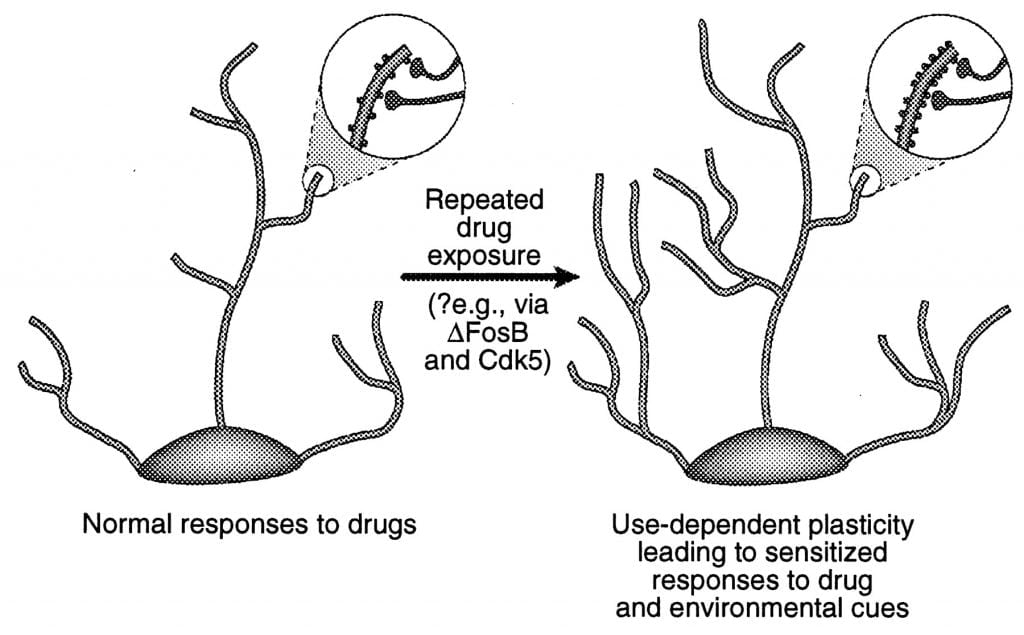Neuroplasticity means structural changes in the brain that lead to learning, unlearning, and memory. Addiction involves very powerful learning and memory, thus significant changes in the brain. These changes involve key chemicals (such as DeltaFosb) and alterations in synaptic strength. It can pretty technical. For a great explanation on neuroplasticity see Norman Doidge on pornography.
Behavioral addictions and drug addictions share common mechanisms and result is similar brain changes. This makes perfect sense as drugs can only amplify or decrease existing physiological mechanisms. The molecule Delta FosB appears to be the molecular switch for all addictions. It’s a transcription factor, which means it turns genes on an off. Pseudoscientific arguments that behavioral addictions are qualitatively different or are “compulsions” rather than addictions have no basis in hard science. More studies on Delta FosB’s role in sexual behavior can be found here – Delta FosB and Sexual Behavior
This section contains both lay articles for the general public, and research articles. If you are not an expert in addiction, I suggest starting with the lay articles, they are marked with an “L”
